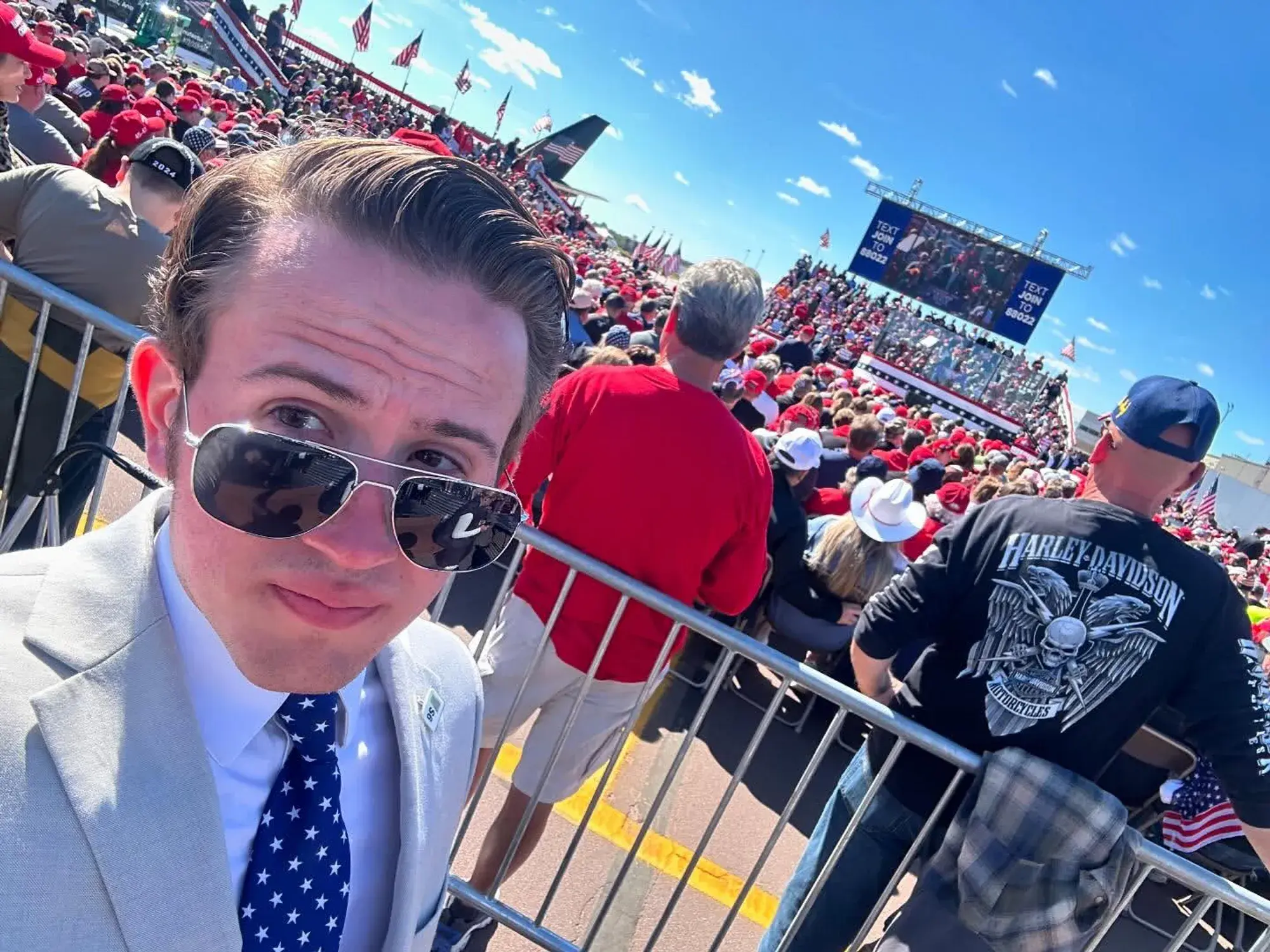President Donald Trump has appointed 22-year-old Thomas Fugate to head the Department of Homeland Security’s (DHS) Center for Prevention Programs and Partnerships (CP3), the agency responsible for coordinating U.S. terror prevention efforts. Fugate’s rapid ascent from a grocery store assistant and gardener to a key federal leadership role has raised questions about qualifications, political loyalty, and the future direction of homeland security under the Trump administration.
So Who Is Thomas Fugate?
Thomas Fugate graduated in May 2024 from the University of Texas at San Antonio with degrees in politics, law, and business. Prior to his graduation, he worked at an H-E-B supermarket in Austin, Texas, and ran a small landscaping business. His political involvement includes internships at the Heritage Foundation—a conservative think tank—and with Texas Representatives Terry Wilson and Steve Allison. He also served as an advance team member for Donald Trump’s 2024 presidential campaign.

Despite his limited experience in national security, Fugate was hired as a special assistant in a DHS immigration office in February 2025. Following the resignation of CP3’s previous director, William Braniff, amid significant staff reductions, Fugate was appointed to lead the center.
The Role of CP3 in U.S. Terror Prevention
The Center for Prevention Programs and Partnerships (CP3) is a division within DHS tasked with coordinating efforts to prevent terrorism and targeted violence through community engagement, education, and strategic partnerships. Established in 2021, CP3 administers the Targeted Violence and Terrorism Prevention (TVTP) grant program, which has distributed nearly $90 million since its inception.
Under Fugate’s leadership, CP3 is responsible for overseeing these national efforts, including the administration of $18 million in grants aimed at preventing hate-fueled violence and coordinated attacks.
Controversy and Criticism Follows The Decision
Fugate’s appointment has drawn criticism from counterterrorism experts and political observers who question his qualifications for such a critical role. Some have likened the decision to “putting the intern in charge,” expressing concern over the potential risks associated with placing an inexperienced individual at the helm of national terror prevention efforts.
Additionally, CP3 has experienced significant staffing cuts, reducing its personnel from approximately 80 to fewer than 20 employees. These reductions have raised further concerns about the center’s capacity to effectively carry out its mission under Fugate’s leadership.
Political Play Implications
Fugate’s rapid rise within DHS is seen by some as indicative of the Trump administration’s broader approach to governance, which emphasizes loyalty and alignment with the “Make America Great Again” (MAGA) movement. His social media presence reflects a politically ambitious persona aligned with conservative values, featuring posts with prominent Republican figures and slogans like “Men used to do great things. I believe they still can.”
As the youngest person to lead a major federal counterterrorism initiative, Thomas Fugate’s tenure at CP3 will be closely watched. His appointment raises important questions about the balance between political loyalty and professional expertise in national security roles. The effectiveness of CP3 under his leadership will have significant implications for the United States’ ability to prevent domestic terrorism and targeted violence in the years to come.




